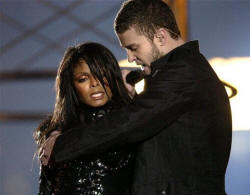 |
Other
News... sponsored by Richardson Repair & A-Plus Flooring |

 FCC appeals Janet Jackson case to Supreme Court
FCC appeals Janet Jackson case to Supreme Court
[November 22, 2008]
PHILADELPHIA (AP)
--
The FCC this week appealed a ruling by the 3rd U.S. Circuit Court of Appeals in Philadelphia, saying that court was wrong to throw out the case and a $550,000 fine against CBS Corp. in July.
|
The appellate court cited the FCC practice of not considering objectionable images indecent if they are "fleeting." In Jackson's halftime show at the 2004 Super Bowl, which spawned the case, she briefly flashed a breast as she performed with Justin Timberlake. The FCC said the court incorrectly applied a rule - since changed - regarding expletives that required a profanity be repeated before it is deemed indecent. The FCC contends the rule didn't apply to images. Reaction to the appeal was swift from the Media Access Project, which filed a friend-of-the-court brief with the appellate court on behalf of a group of TV writers, directors and producers. "The impact of the FCC's decision on the creative process is very profound," said the group's chief executive, Andrew Jay Schwartzman. "The FCC's decisions in this area have made it very difficult for creative artists to exercise their craft." At the time, broadcasters did not employ a video delay for live events, a practice that changed within a week of the game. The FCC also has an appeal pending before the U.S. Supreme Court in a New York case involving profanity uttered by Cher during a December 2002 music awards show and by Nicole Richie during a December 2003 awards show, both carried on Fox stations. The agency has asked the court to rule in that earlier case before taking on the Jackson incident. Copyright 2008 The Associated Press. All rights reserved. This material may not be published, broadcast, rewritten or redistributed.
|
 |
